Author: Natalie
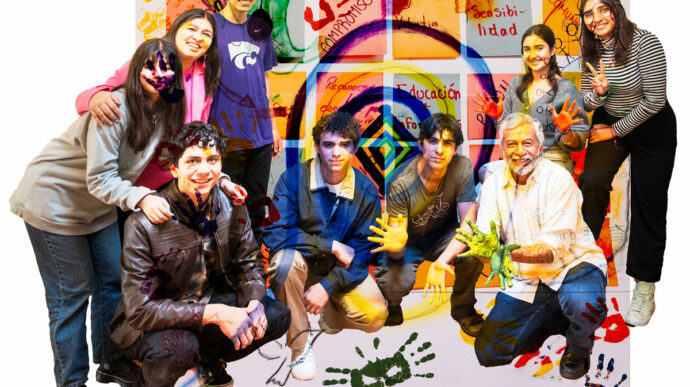
“There was a combination of intellect combined with the heart, the good will and harmony of the participants. This process shows a pillar of humanity in all its aspects.” Gaal Cohen, Mexico Show More »
Vision 2030 Colectivo Ecologista Jalisco, A.C. (CEJ), Mexico There was a combination of intellect combined with the heart, the good will and harmony of the participants. This process shows a pillar of humanity in all its aspects.” Gaal Cohen, Artist The Vision In CEJ’s artwork they merged photographs of the paintings and participants, creating a […]

“I show the dangers of anarchic plastic waste management and propose responsible solutions by transforming it into useful objects. “ Bujaba Isaac, Burundi Show More »
Vision 2030 Association Burundaise des Consommateurs (ABUCO – TI), Burundi I show the dangers of anarchic plastic waste management and propose responsible solutions by transforming it into useful objects.” Bujaba Isaac, Artist The Vision The vision is of a world where the blight of plastic pollution is transformed into a beacon of innovation and sustainability. […]
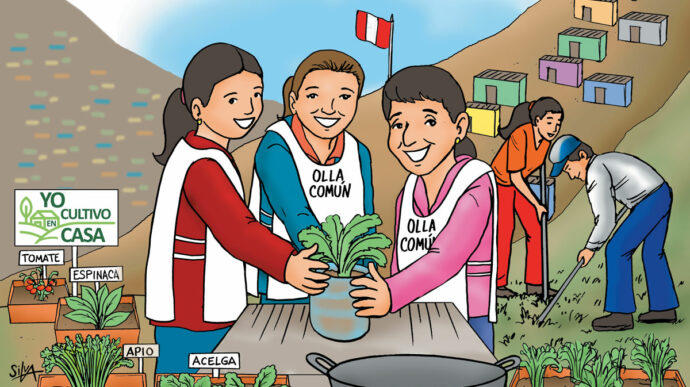
“Highlighting citizen values and transformation from a vision of responsibility and commitment for sustainable change.” Juan Carlos Silva Bocanegra, Peru Show More »
Vision 2030 Asociación Peruana de Consumidores y Usuarios (ASPEC), Peru Both works highlight citizen values and transformation from a vision of responsibility and commitment for sustainable change.” Juan Carlos Silva Bocanegra, Artist The Vision This vision is of a future where people are eating healthy food that they produce at home. This creates a greater […]
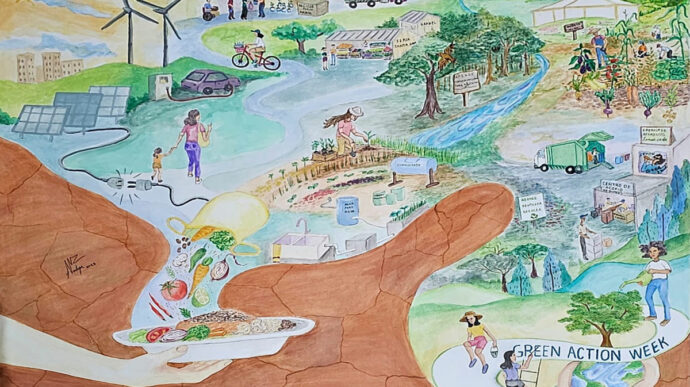
“The hand that holds the plate represents the responsibility of the individual who has the decision in his hands, to take consistent and responsible actions with the sustainability and protection of nature.” Noilyn Vega Zamora, Costa Rica Show More »
Vision 2030 Ambio Sociedad Civil (Ambio), Costa Rica The hand that holds the plate represents the responsibility of the individual who has the decision in his hands, to take consistent and responsible actions with the sustainability and protection of nature.” Noilyn Vega Zamora, Artist The Vision This artwork embodies a vision of individual responsibility and […]
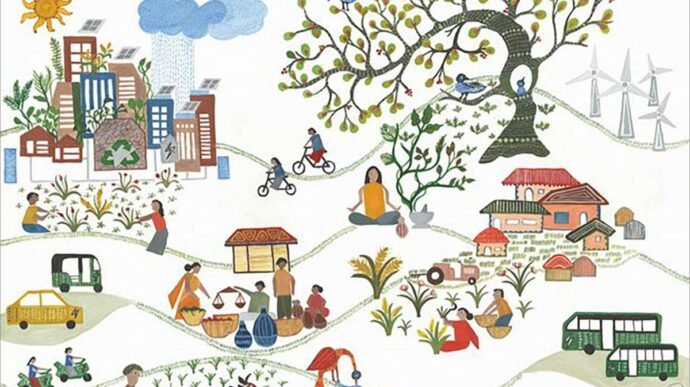
“It is critical that we encourage and support youth in taking up leadership roles in calling for a change to current unsustainable systems as it is youth that will have to live with the consequences of decisions made today. Their voices need to be recognised and respected.” John Black, Artist
Is this excerpt visible anywhere?
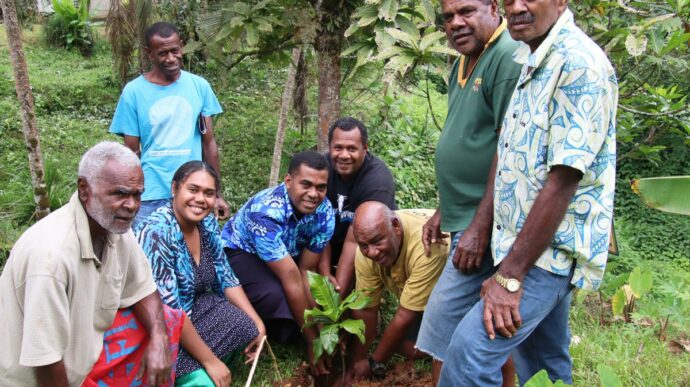
Green Action Week participants focus on renewable energy solutions
The production of energy from non-renewable fossil fuel resources is not sustainable and the production, generation and distribution of energy is a primary driver of greenhouse gas emissions, which are causing climate change. While there is a shift towards the use of renewable energy sources (wind, solar, hydropower), the transition is not happening fast enough to mitigate climate change. Several participants of the 2023 Green Action Week focused their campaigns on supporting the transition to renewables.
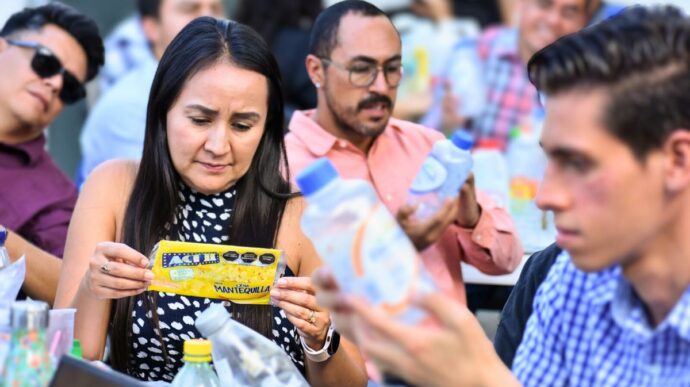
Green Action Week: Upcycling, Recycling, Reducing Waste
Bringing about sustainable consumption relies on significantly reducing and eventually eliminating waste. Waste refers to anything that is discarded through the production cycle or after consumption. If not reused, recycled or upcycled, waste (clothing, food, electronic, plastic packaging etc.) accumulates in landfills and natural spaces. As waste decomposes over time – and for some products that could be several lifetimes – it releases chemicals and other compounds into the air, soil and water bodies. These pose a health risk – to people and to ecosystems. The circular economy approach focuses on reusing and recycling resources to make the most of them throughout their lifecycle. Many Green Action Week campaigns focused on reducing and recycling waste and boosting a circular economy approach.
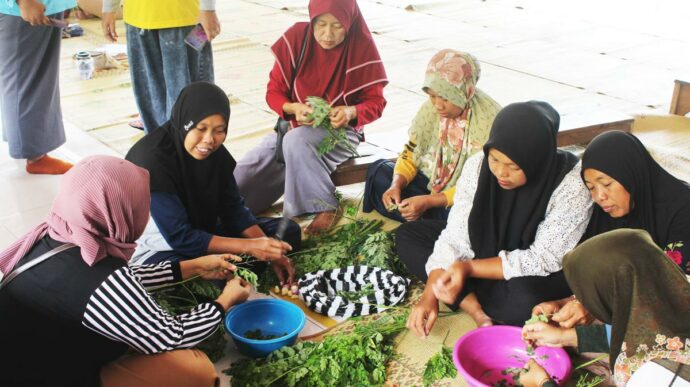
Green Action Week Participants Reclaim Indigenous Seed and Knowledge
When we lose indigenous and local varieties of food and seed, we also lose the knowledge and cultural identity associated with it. Local and indigenous varieties tend to be more resilient to climate change, are increasingly being recognised as having higher nutritional value, and are embedded into many social and community rituals. Several Green Action Week participants used their campaign to raise awareness of the benefits of these varieties, often showcasing ways to prepare and cook them.
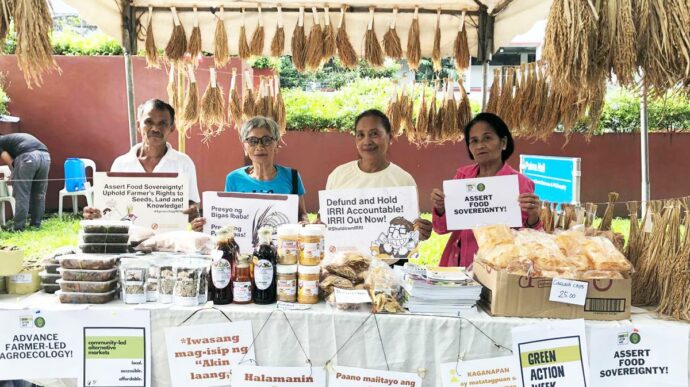
Green Action Week Promotes Uptake of Sustainable Food and Farming Systems
Food is not a commodity, it sits at the heart of social life, part of many cultural customs and identities. When food is abstracted into a commodity, often made far away from the place of consumption, the resources used to make it are not visible, how it is made is not transparent, and payment for it takes money out of local economies. We need to revive food cultures that support local producers, consume seasonal and nutrient-dense, chemical-free foods, and that support beneficial community life. Many of the Green Action Week 2023 participants used their campaigns to show how food and farming can be reimagined as a cultural and community good.